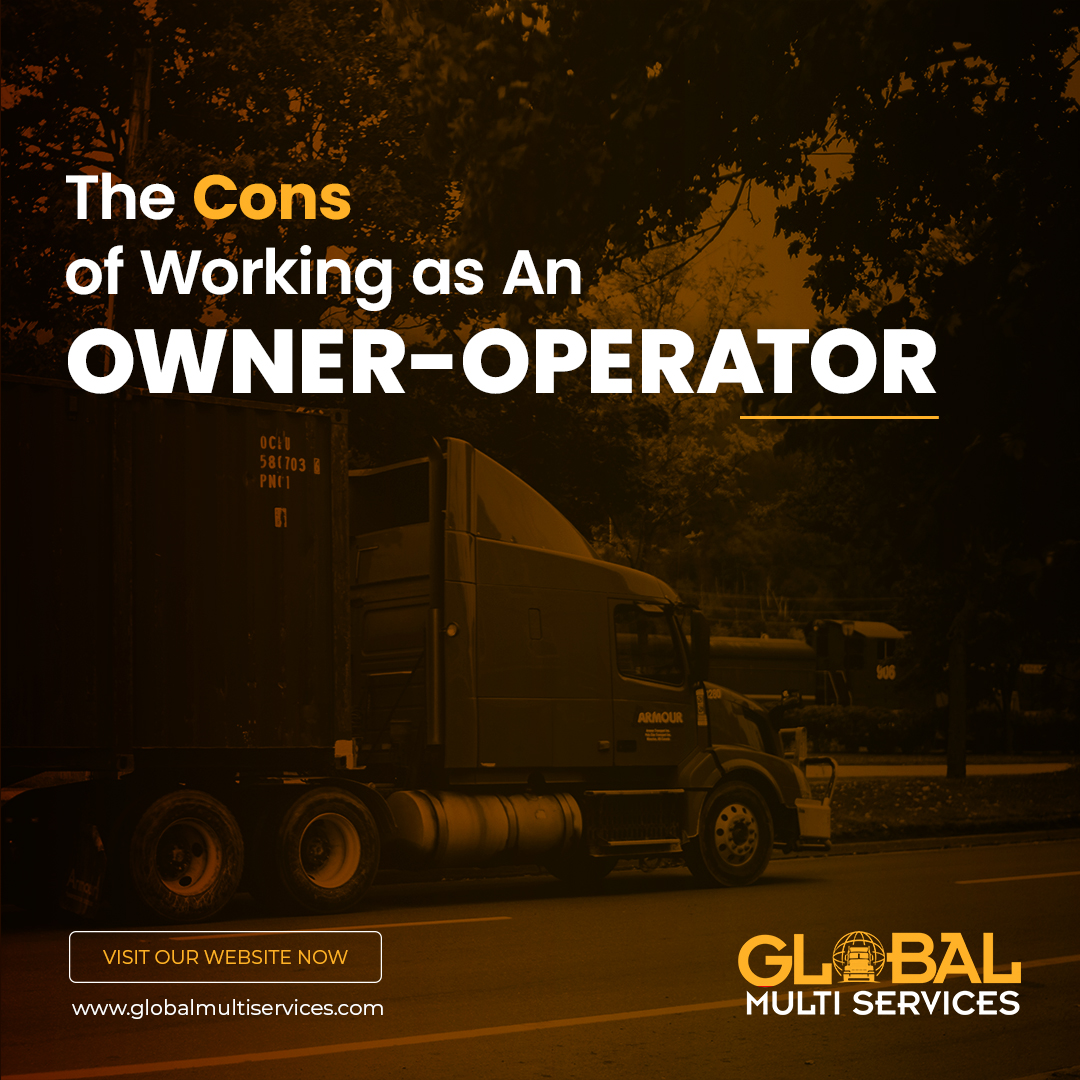Do you want to set your hours and be independent while driving? Are you planning to venture into the trucking industry but not sure if the trucking business is a good investment? We have all the answers to your question.
The trucking industry keeps everyday life moving, and the industry has continuously grown over the years. With the trucking demands and digital revolution, trucking companies are more valuable than ever. But the National Association of Small Trucking Companies states that about 15% of new trucking companies survive their first year of business.
Well, your trucking company does not have to be one of those 15% statistics. Whether owner-operator or truck driver, you can create a profitable trucking business with careful planning, hard work, and dedication.
At Global Multi-Services, we want to make that happen. That is why we compiled a list of things to consider to ensure your trucking business provides a return on your investments.
SELECT A SPECIFIED NICHE
Choosing a specified niche determines the services you offer, what equipment you buy, and what rates you charge. It is also one of the best ways to form critical financial planning and make profits.
Look for loopholes in the industry. That is, what customers are lacking in the industry. It is also advisable to pick a niche with less competition directly from large, established companies.
For example, the dry van market is more competitive because it has many established companies and owner-operators. But temperature control is a more profitable niche. There is less competition, seasonal fluctuation, and risk of economic disruptions to the market.
CALCULATE THE OPERATIONAL COST
An adequate financial plan is paramount when starting a trucking business. Also, your income must be higher than your expenses to make profits. Therefore, you must know your operational cost. These help you determine the revenue you need to generate to make a profit and how high you need to set your prices.
The operational cost is divided into fixed costs and variable costs.
FIXED COST
Fixed costs are predictable costs, and they do not fluctuate over time. They include the following:
- INSURANCE
Having insurance is mandatory for all trucking companies. Primary auto liability and general liability insurance should be the very minimum. You can also include coverage for physical damage, cargo, medical payment, and reefer breakdown coverage.
- TRUCK AND TRAILER COST
Your truck and trailer cost often varies from time to time. However, it will be a fixed cost you pay every month if you take a loan.
- LICENSE AND PERMIT
Trucking companies must obtain state and federal permits to operate legally in the United States. The Federal Motor Carrier Safety Administration and Department of Motor Carriers ensure trucking companies adhere to the industrial regulations. So, you need funds to apply for your IRP Apportioned License Plates, IFTA License and Decals, UCR Permits, Motor Carrier Authority, and Unified Carrier Registration. These licenses and permits often require yearly or quarterly renewal, which could mean extra fees.
VARIABLE COST
Variable costs are costs that do not fluctuate based on production or revenue-generating activities. They affect cash flow and increase based on your business size.
Variable costs include the following:
- MAINTENANCE SERVICE
Your equipment requires regular maintenance to keep them in good working condition. It varies depending on your operations and equipment.
- FOOD AND TOLLS
Food is a must-have, and its prices depend on the area and restaurant. The toll fee also depends on the states you are operating across.
- DRIVER COMPENSATION
Driver compensation is your highest variable cost. Therefore, carefully plan the types of truck drivers you want to employ. Also, you can work with owner-operators if it’s a better option.
- FUEL PRICE
Fuel prices are different in each state, season, and city. So, your fuel cost depends on the miles traveled and the state.
CUT FUEL COST
The International Fuel Tax Agreement simplifies fuel tax reporting for trucking companies operating in the contiguous states and Canadian provinces. But they must obtain an IFTA License and IFTA Permit in their base jurisdiction to be qualified. Registered companies must also file IFTA Quarterly Fuel Tax Report to their base jurisdiction totaling miles traveled and fuel purchased in all participating jurisdictions. Your base state calculates the fuel tax you owe each jurisdiction.
With IFTA, trucking companies’ fuel taxes are determined by the fuel cost in their base jurisdiction. That means fuel price at the pump minus their per-gallon state tax. Therefore, always purchase fuel in states and pumps with the lowest price.
FIND SHIPPERS
Finding loads can sometimes be hard for a new trucking company. So, you need to develop a good strategy for finding shippers. Develop direct relations with shippers and offer a competitive price. These promote your business and maximize your profit margin. You can also find shippers through freight brokers or load boards. But they will charge a fee, reducing your profits.
PLAN YOUR CASH FLOW
Running a successful trucking business requires careful planning of your cash flow. Shippers and brokers make payments between 15, 30, and 45 days. So, a cash-flow management strategy is mandatory to keep your business running while waiting for payments.
PROMOTE YOUR BUSINESS
The trucking industry is highly competitive. Therefore, you must promote your business relentlessly to attract good clients and quotes. Create a website and social media accounts to reach out to your potential customers. Also, attend various networking events and join online communities to connect with people beneficial for your business growth.
ABOUT GLOBAL MULTI SERVICES
Global Multi Services help trucking companies apply for their truck permit and license in the United States. Our experience and expertise allow us to overcome permit application difficulties and obstacles, allowing you to run your trucking business legally.




